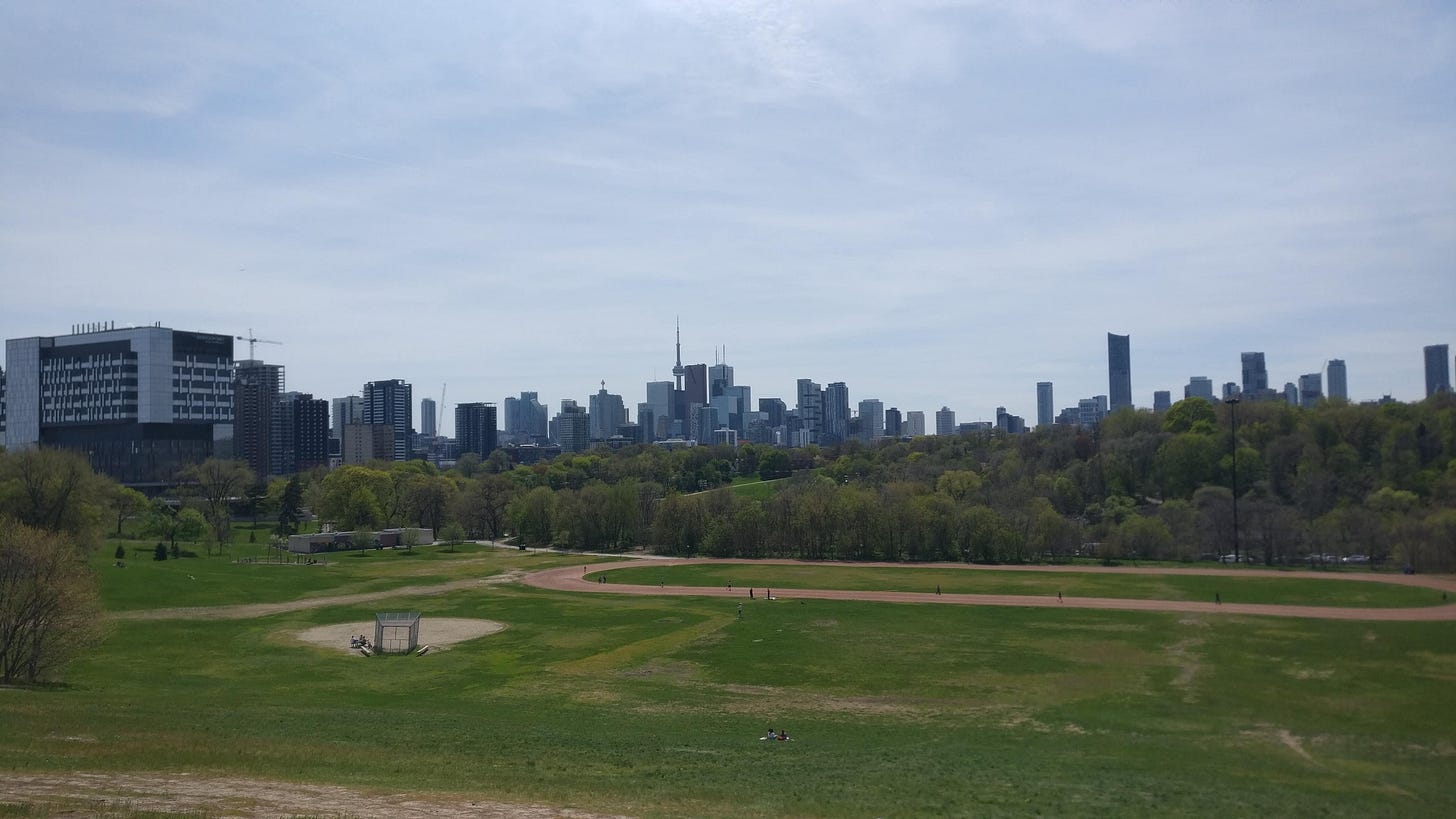Toronto's state of emergency was declared over, after 777 days.
For a long time after the first lockdown in March of 2020, people lived parallel lives. There was the life they were living and the life they had planned. People kept mentioning what they were supposed to be doing. The business trip that was cancelled. The birthday party that became a video call. The family vacation that was transformed into a confusing mix of refunds and vouchers. The sports season that was skipped over. It seemed that anyone could tell you what they would have been doing on April 12th or August 23rd or November 4th or February 2nd if the pandemic hadn’t changed everything.
We've mostly gone beyond the time we'd planned for in March of 2020. Or it seems that way, since people have stopped casually dropping what they were supposed to be doing if their lives had gone another way.
When we do this after an accident or a diagnosis we aren’t so vocal about it. Those parallel lives go on in our minds. The lives we imagined and planned that never happened.
When do we stop imagining where we would be if our lives had taken a different turn? If the world had stayed the same? Perhaps it's a sign that we've accepted the reality we're in and are ready to act based on where we are, rather than dreaming of where we feel we should be. Except when it bubbles up, in those moments that defy expectations we didn’t know we had.
Life doesn't care about our five year plan. Life doesn't care where we think we should be.
The Local addresses changes hospitals need to make in order to not be overwhelmed by covid cases and the backlog of delayed treatment. So much of the struggles we've faced are a consequence of worker shortages. Many of the disasters we avoided are thanks to the sacrifices of workers.
As someone who immigrated to Canada through the skilled worker program, I’ve experienced Canada’s attempts to recruit care workers. Canada approves people who speak English fluently, have advanced degrees and credentials, and have several years of work experience. You need to prove that you have a highly skilled job waiting for you in Canada or adequate savings to support yourself and your family for at least six months. Once we’ve arrived in Canada, they aggressively push us into low wage care roles, partly by making it a years-long and incredibly expensive process to have international credentials recognized.
The government funds job centers for newcomers, funneling us into "unskilled" roles paying poverty level wages. They encourage us to take unpaid internships with corporations while working these survival jobs. For the past year, the government of Canada has eagerly been offering me a scholarship to pay for my training to become a home health aid. Settlement services keep offering to help me find a job as a care worker.
The government gets to say, truthfully, that they’re trying to do something about the shortage of care workers. Something destined to have no impact.
Not surprisingly, few people with masters degrees and medical licenses opt to pivot their careers into care work roles with low pay, low status, and exhausting working conditions. The people who’ve come to Canada after working as doctors, nurses, dentists, and attorneys in other countries do not want to work for minimum wage. They instead choose to take a step down, taking the highest job they can without their license and experience being recognized. Or they shift to roles in administration. Or they start their own businesses and focus on the success of their children. Or they go home and resume the careers they left.
The problem is that care work is not something the government views as valueable. No one wants to take jobs with low pay, unpredictable hours, and significant unpaid time, that are viewed as unskilled labor. These jobs aren’t pathways onto the career ladder. There’s no reason they couldn’t be good jobs.
Medical professionals who’ve immigrated from abroad see their careers stall or start over from the bottom. Meanwhile, Canadians complain that it’s impossible to find a family doctor who’s accepting new patients. There’s a nursing shortage, too. There’s a shortage in virtually all medical roles. The government spends a lot of money on immigration and settlement. Yet everyone loses.
Some problems are inevitable. Others are the problems we create.
I was fascinated by the story of Sigrid Undset’s life in Plough. It's interesting to consider how in Norway in the early 1900s, the mother of two disabled children faced the threat of her children ending up in an orphanage if she couldn't provide for them. I wonder how the experience of placing your children in foster care compares to placing them in an orphanage.
NPR recently did a follow up piece on the Katie Beckett story. It's the Beckett family who many children have to thank for being allowed to grow up at home rather than in a hospital.
Paula Span covers a system designed to help identify when people are capable of making their own decisions. If someone understands the situation, their options, and potential consequences, they have the right to make their own choices, even if we don't approve. It’s easy to agree with in theory and tough to carry out in our own lives.
Friends who've been watching the Eurovision Song Contest made sure I saw Serbia's contribution: a song about the way we equate health with worth and the difficulty of accessing care.
If you're the parent of a disabled kid, enrollment is open for a McMaster course on family engagement in research. There are full scholarships available.




